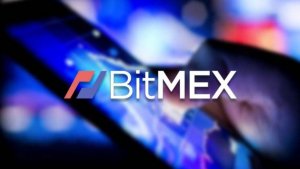Opinion: Distributed ledger tech has outgrown the sandbox
By Jerome Kemp, President of Baton Systems.

The recent news that the Financial Conduct Authority’s digital sandbox – its testing environment for firms to experiment with early-stage software – is now available on a permanent basis is certainly good news for fintech innovation. That said, with the increasing adoption of distributed ledger technology – particularly in the post-trade space – play time may be over!
Practical and effective applications for DLT are already disrupting capital markets globally, particularly with regards to the tech’s ability to transform the post-trade lifecycle. Indeed, many buy and sell-side firms are already able to achieve dramatically higher levels of efficiency and transparency by adopting DLT, reducing settlement risk, and optimising the way they manage funding and liquidity.
A distributed ledger can achieve simultaneous, instant, and immutable information sharing across a network. This approach works well with existing systems and can significantly improve the efficiency, transparency, speed, and accuracy of post-trade processes. In addition to the shared visibility of permissioned data, distributed ledger technology can provide the framework for shared workflows. This allows network participants to finalise trades based on data that has been acknowledged as the accurate representation of their transactions, risks, and settlement obligations.
Several software offerings are emerging that harness this technology to provide firms with meaningful efficiencies across various FX post-trade processes, such as settlement. These can address the entire post-trade value chain – from trade ingestion to netting, culminating in the settlement of obligations with absolute finality.
Prior to these innovations, market participants largely relied on legacy payment versus payment (PvP) settlement provider, CLS, whose daily processing addresses roughly 40% of settlements across 18 eligible currencies and for a universe of participants including approximately 78 direct platform members. CLS processes require the immobilisation of significant funding and liquidity resources over extended time intervals and fall short in responding to the growing volumes, regulatory changes, and related settlement, funding, and liquidity challenges that accompany the rapid growth in the trading of both CLS eligible and ineligible currencies. More importantly, the settlement of ineligible transactions is no small problem, representing more than $2tn of daily risk that market participants shoulder outside of the PvP framework.
By adopting DLT, buy-side market participants can acknowledge, validate, net, and coordinate the components of their settlement obligations in real time. The technology supports the orchestration of a netting and riskless PvP settlement process, with finality in virtually any currency, including settlement for transactions booked for same-day or immediate settlement. New currencies can also be added quickly, empowering market participants to think about managing settlement risk in an entirely different way.
The implications of using DLT and collaborative workflows are widespread in today’s market environment. Extinguishing a settlement obligation with a counterparty on a riskless basis in a five-minute window, rather than over a 24-hour cycle, will have extremely broad appeal. Traders that are no longer constrained by settlement lines can generate more turnover and revenue with existing counterparties. In light of the flexibility distributed ledger-based settlement protocol offers users, trading opportunities with new counterparties will also emerge.
From a funding and liquidity perspective, the ability to sequence settlements as a function of rolling funding and liquidity cycles in markets and currencies across the global day is a clear advantage. From a specific funding perspective, a firm may be better served by programmatically splitting the settlement of large amounts into a series of smaller shapes over the course of a day and recycling these funds more dynamically, than by immobilising a much larger amount of funds over a protracted settlement horizon.
While many remain skeptical of this pioneering technology, markets have demonstrated time and again that the adoption of new technology can occur very quickly, propelling the visionaries forward and leaving the naysayers stranded in the rear-view mirror. In the same way, electronic trading took certain markets by storm three decades ago, DLT is in a position to revolutionise not just settlement, but also the way in which firms manage their broader payment and collateralisation obligations.

Jerome Kemp is president at Baton Systems, the global FinTech digitally transforming post-trade processing using distributed ledger technology (DLT). With over 35 years of industry experience gained in leadership roles in Paris, Tokyo, and London, Jerome Kemp is a recognised leader in the global futures industry. He was formerly Global Head of Futures, Clearing, and Collateral at Citi.
The subject matter and the content of this article are solely the views of the author. FinanceFeeds does not bear any legal responsibility for the content of this article and they do not reflect the viewpoint of FinanceFeeds or its editorial staff.









